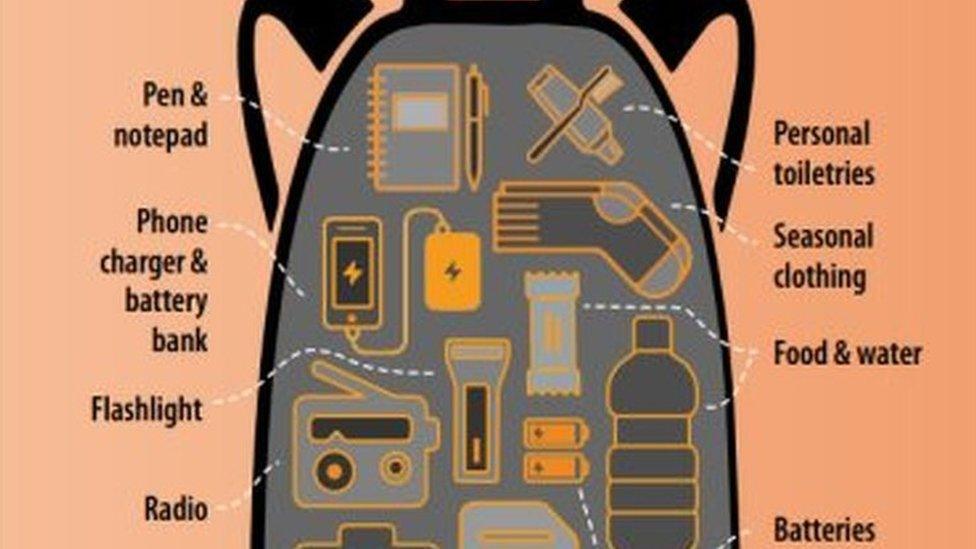Grab bag: 'I keep one for peace of mind'
- Published
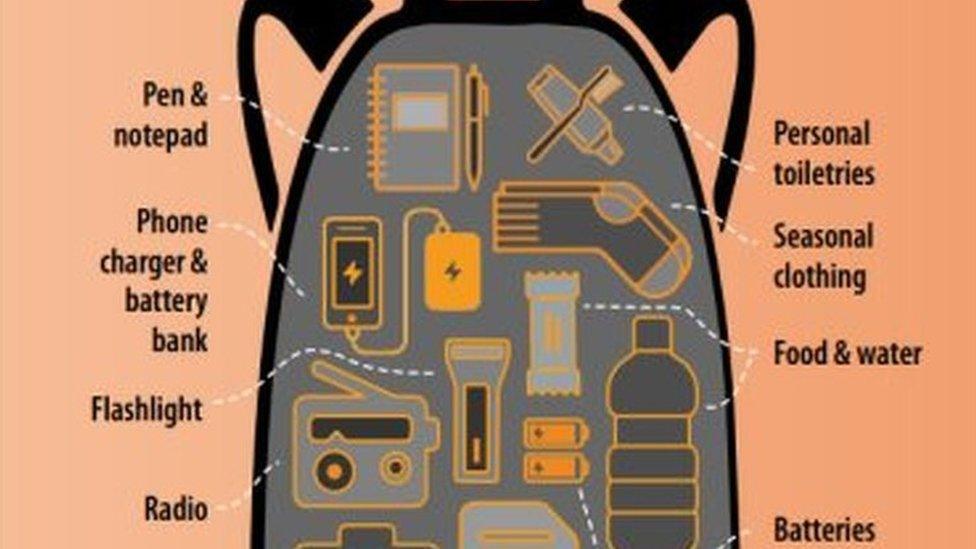
Police Scotland issued a diagram of a recommended "grab-and-go" bag via Twitter
A police campaign to get the public to prepare a "grab-and-go" bag in case of emergencies has been accused of scaremongering and mocked on social media - but for some, they are a sensible precaution.
The BBC spoke to people who keep their essential supplies in one place, just in case they have to drop everything and go.
'Peace of mind'
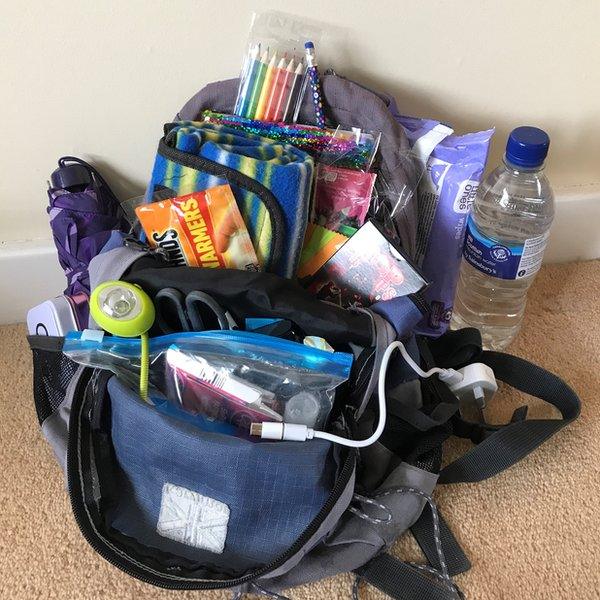
Jo Gardner's "grab bag"
It was 2am when Jo Gardner and her husband were woken by a knock at the door. It was the police, warning that a fire had broken out at a works unit on their road.
In the 10 minutes they were given to evacuate the house, they searched frantically for documents, keepsakes and hard drives.
"We had to go there and then, there was no waiting. It was very dramatic, very sudden," says Mrs Gardner, who works in education in Lincolnshire.
That incident was two years ago. Luckily, they were able to return to their house. But ever since, they have kept emergency supplies for themselves and their nine-year-old son ready to pick up at any minute.
They keep most of their things, like documents and hard drives, in an emptied-out toolbox. Mrs Gardner also has her own rucksack full of basic medical supplies, a portable phone charger, torch, water and - crucially - sweets.
"I think it's good practice, just for peace of mind," she says.
"It's one of those things that you would put off doing unless it happened, because we wouldn't have had one unless something [had] happened.
"You could have a knock at the door [and be told] you've got to go now. There's no sticking around, you might not be given the choice."
'Useful'
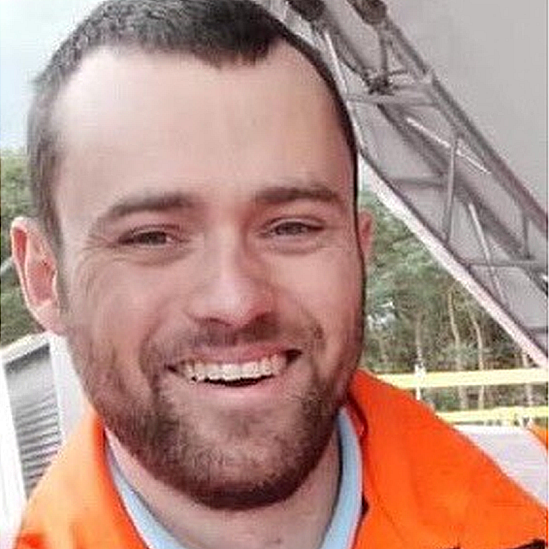
Dom Mottram, who works on railways in the Midlands, also keeps a bag with him in case of emergencies such as fires or car breakdowns. In it, he carries supplies like medicine, food, drink and spare clothes.
"Just stuff that, if I were to get stuck out somewhere, would be useful," he says.
He believes that the strong reaction to Police Scotland's tweets is a result of current unease about Brexit, and that the term "grab bag" is unhelpful because it makes a simple precaution seem "massively complicated".
"If you have young children, if you have a long-term medical condition, if you're the kind of person who takes a coat when you go outside... it's not a 'grab bag', it's just a bag you take outside if you're going out for the day, or going on holiday," he says.
"I don't have a survival blanket, I don't have a flare, I don't have a life jacket, I don't have crazy stuff like that.
"If [the police] had just done it on a dreary Wednesday afternoon in 2013, no one would have batted an eyelid."
'Common sense'
For Esme Higgs, from Warwickshire, it is "common sense" to keep a "grab bag" when UK households are at risk from fires, floods or gas leaks.
"It is far better to leave knowing you will be prepared for a short absence, and able to prove your identity [and] contact insurance companies," she says.
She and her family keep separate bags full of toiletries, spare clothes, and medical supplies in their bedrooms. She also keeps sanitary towels and a sewing kit in hers.

Esme Higgs' "grab bag"
She thinks the criticism of the police campaign is "undeserved".
"You wouldn't criticise the police for advising you to lock your car or keep your wallet safe, or for helping you to evacuate if one of these scenarios occurred," she says.
"We do not live in a happy little bubble of security just because we are British. Sadly these things don't just happen to 'other people'."
'A good idea'

Dr Philip Lee, a consultant doctor from London who specialises in acute medicine and elderly care, thinks the police should encourage people to prepare for emergencies.
"Although there aren't earthquakes or tornadoes in the UK we're not immune from having to evacuate due to gas leaks, or potential dam failures," he says.
Although he doesn't have a "grab bag", he keeps emergency essentials - including important documents - near the front door, ready to take with him if he needs to leave home. They include tinned food, tea and coffee, a first aid kit, a torch, batteries, a radio and phone chargers.
"The items listed [by the police] seem sensible, and overall it's a good idea," he says.
'Worry'
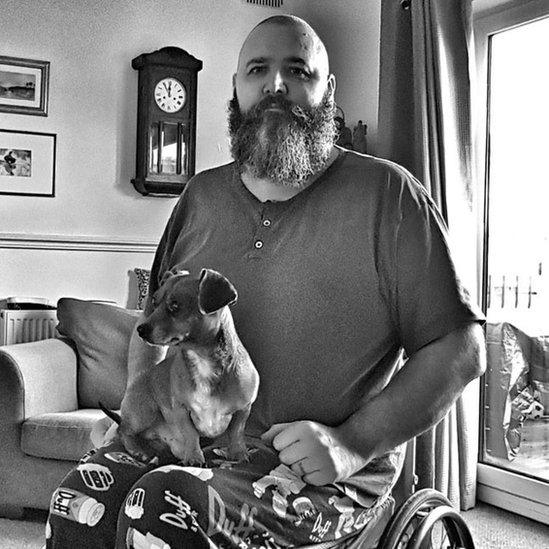
Zec Richardson, from Essex, says he kept a grab bag when he became a father in the 1990s.
"I think you worry more about various scenarios when you become a parent," he says, adding that he stopped carrying one for a while, but has started again recently.
Inside he keeps a first aid kit, water, waterproofs, and a radio, among other supplies.
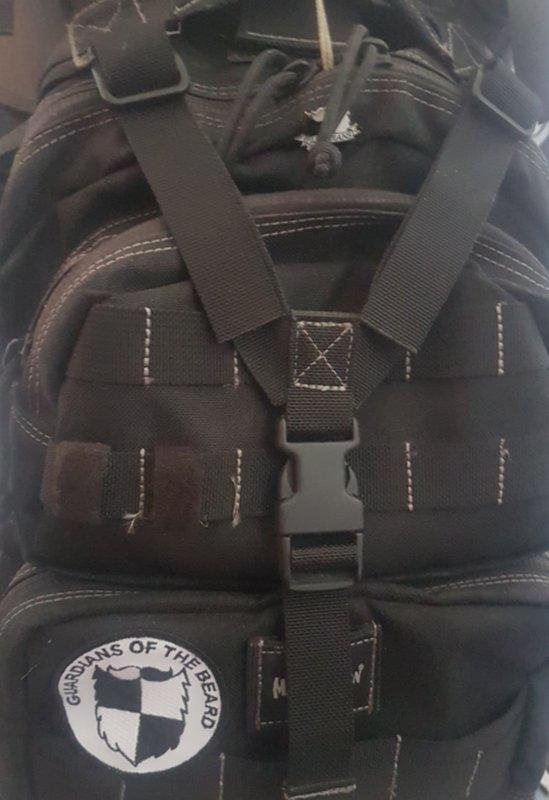
Zec Richardson's grab bag
"I no longer feel secure and safe and that, I think, is partly now because I am disabled," he says.
"A few years ago we had riots and I really think that it won't take much to tip the UK into civil unrest."
'A few improvements'
Commenting on the police advising people to pack for emergencies in the run-up to Brexit, however, others had different views about what a "grab bag" should contain.
Allow X content?
This article contains content provided by X. We ask for your permission before anything is loaded, as they may be using cookies and other technologies. You may want to read X’s cookie policy, external and privacy policy, external before accepting. To view this content choose ‘accept and continue’.
- Published9 September 2019
